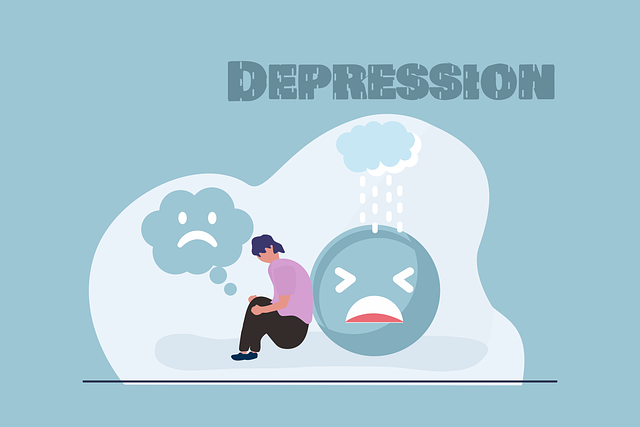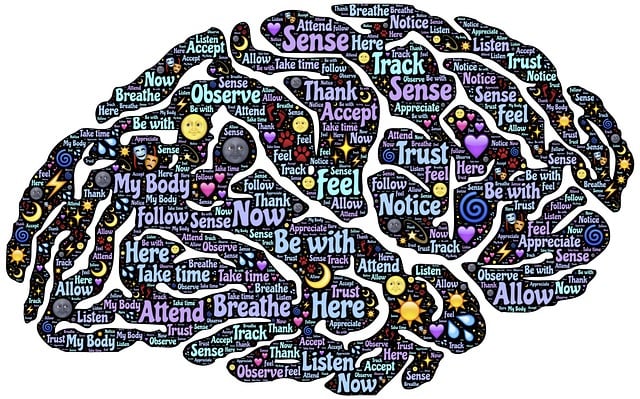Understanding mental health data from various sources, including schools, healthcare providers, and online platforms, is crucial for developing effective therapy strategies for adolescent teens with chronic illnesses. By increasing mental health awareness, identifying key data points like depression rates and anxiety diagnoses, and employing empathy-building strategies, professionals can tailor personalized treatment plans. Analyzing medical records, patient histories, and psychosocial data offers unique insights into disease development and management. Incorporating cultural competency training and crisis intervention improves outcomes by addressing specific cultural considerations and stress related to illness management. Data-driven analysis enables tracking progress, adjusting treatment plans, and setting clear goals for successful risk management and symptom management in adolescent teens with chronic illnesses.
Mental health data analysis is a powerful tool in understanding and improving outcomes for adolescent teens with chronic illnesses. This article explores key aspects of interpreting mental health data, from collection through treatment adjustments. We delve into analyzing specific cases, personalizing therapy strategies based on insights, and measuring success in teen chronic illness management. Understanding these processes enhances our ability to provide effective therapy for adolescent teens chronic illness, ultimately improving their well-being.
- Understanding Mental Health Data: Collection and Sources
- Analyzing Adolescent Teen Chronic Illness Cases
- Interpreting Data for Personalized Therapy Strategies
- Measuring Success and Adjusting Treatment Plans
Understanding Mental Health Data: Collection and Sources

Understanding Mental Health Data involves navigating a complex landscape where various sources contribute unique insights. Schools, healthcare providers, and online platforms increasingly collect data on mental health, including therapy sessions for adolescent teens and those managing chronic illnesses. These datasets offer a rich, albeit sensitive, resource for analysis. By utilizing Empathy Building Strategies, Mental Wellness Coaching Programs can be developed and refined based on real-world trends and individual experiences captured in these records.
The process begins with identifying relevant data points—depression rates among teens, anxiety diagnoses, and the effectiveness of certain therapies, for instance. Mental Health Awareness initiatives have made significant strides in encouraging open conversations about these issues, leading to more comprehensive and accurate documentation. As data from diverse sources is aggregated, researchers and mental health professionals can gain deeper insights into the scope and nature of common mental health challenges, guiding evidence-based interventions tailored to specific populations.
Analyzing Adolescent Teen Chronic Illness Cases

Analyzing cases of chronic illnesses among adolescent teens presents a unique challenge in mental health data interpretation. These young individuals often face complex psychological and social factors that contribute to their conditions, requiring tailored approaches for effective therapy. By delving into this specific demographic, healthcare providers can uncover valuable insights into the development and management of chronic illnesses, ultimately enhancing the quality of care.
The process involves a comprehensive review of medical records, patient histories, and relevant psychosocial data. Identifying patterns and trends in treatment responses allows mental health professionals to offer more personalized therapy for adolescent teens with chronic ailments. Moreover, incorporating cultural competency training for healthcare providers can significantly improve outcomes by addressing unique cultural considerations and ensuring inclusive care. Crisis intervention guidance and anxiety relief strategies are also integral components, as these teenagers may experience heightened stress and emotional challenges related to their illness management.
Interpreting Data for Personalized Therapy Strategies

Interpretation of mental health data is a powerful tool for tailoring therapy strategies to meet individual needs, especially among adolescent teens grappling with chronic illnesses. By analyzing trends and patterns within collected data, mental health professionals can gain valuable insights into each patient’s unique challenges and strengths. This approach allows for the design of personalized treatment plans that address specific issues such as managing symptoms, enhancing coping skills development, and providing trauma support services.
For instance, identifying common triggers for anxiety or depression through data analysis enables therapists to incorporate targeted interventions during therapy sessions. Moreover, understanding cultural or environmental factors influencing mental health can inform the creation of inclusive Mental Health Education Programs. This precision in treatment design not only improves outcomes but also fosters a sense of empowerment and self-management among adolescent teens, helping them navigate their chronic illnesses with increased resilience and improved quality of life.
Measuring Success and Adjusting Treatment Plans

Measuring success and adjusting treatment plans are critical components of mental health data analysis. By setting clear, quantifiable goals at the outset, therapists can track progress and make informed decisions about the most effective therapy for adolescent teens with chronic illnesses. This iterative process involves regularly evaluating symptoms, behaviors, and coping skills development using standardized assessment tools and clinical observations. Such data allows for timely adjustments to treatment plans, ensuring that interventions remain aligned with the individual’s evolving needs.
For instance, risk management planning for mental health professionals can be enhanced by leveraging data insights. By identifying patterns in stress reduction methods that are most beneficial for each teen, practitioners can personalize care and improve outcomes. This data-driven approach not only improves symptom management but also fosters resilience, equipping teens with the coping skills necessary to navigate challenges beyond therapy sessions.
Mental health data analysis is a powerful tool in enhancing our understanding of chronic illnesses among adolescent teens, enabling more effective therapy strategies. By interpreting collected data, healthcare professionals can tailor personalized treatment plans that address unique individual needs. This approach, focused on measuring success and adjusting as needed, ensures that therapy for adolescent teens with chronic illnesses becomes more precise and ultimately improves their overall well-being.










